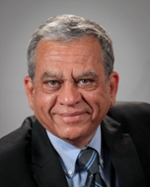Recent News
Mid-Career Researcher Award
April 25, 2019
Datye recipient of 2019 Burwell Lectureship in Catalysis
March 4, 2019
Brinker elected as Fellow of American Academy of Arts and Sciences
April 19, 2018
2016 FEI Image Contest Monthly Winners: Congratulations to Dr. Rita Serda: 2016 Winner of Macrophage Tunneling Nanotubes Image
September 30, 2016
News Archives
Datye recipient of 2019 Burwell Lectureship in Catalysis
March 4, 2019
 The Robert Burwell Lectureship in Catalysis is given in recognition of substantial contributions to one or more areas in the field of catalysis with emphasis on discovery and understanding of catalytic phenomena, catalytic reaction mechanisms and identification and description of catalytic sites and species. The awardee is selected on the basis of his/her contributions to the catalytic literature and the current timeliness of these research contributions. The recipient may be invited to (1) visit and lecture to each of the affiliated Clubs/Societies with which mutually satisfactory arrangements can be made and (2) prepare a review paper(s) for publication covering these lectures. Publication will be in an appropriate periodical.
The Robert Burwell Lectureship in Catalysis is given in recognition of substantial contributions to one or more areas in the field of catalysis with emphasis on discovery and understanding of catalytic phenomena, catalytic reaction mechanisms and identification and description of catalytic sites and species. The awardee is selected on the basis of his/her contributions to the catalytic literature and the current timeliness of these research contributions. The recipient may be invited to (1) visit and lecture to each of the affiliated Clubs/Societies with which mutually satisfactory arrangements can be made and (2) prepare a review paper(s) for publication covering these lectures. Publication will be in an appropriate periodical.
Professor Abhaya Datye and his research group have performed elegant and creative experiments that have clarified relationships between the atomic-level structure of heterogeneous catalysts and their reactivity and/or stability. He has introduced new approaches to doing catalysis research (e.g., model catalysts and sample preparation techniques) that enabled the use of electron microscopy to study industrially relevant catalysts. He thus elucidated important fundamental concepts that are crucial for designing catalysts for improved performance. He showed how catalytic activity is enhanced due to oxidation-induced roughening of metal surfaces in nanoparticles, and how phase transformations in Fe Fischer-Tropsch catalysts can cause catalyst attrition. A major contribution was the use of electron microscopy and sintering rate equations to uncover atomic-scale mechanisms of catalyst sintering. Recently, his group described a method for generating stable monomeric Pt species on the surfaces of a ceria support, termed atom trapping. In this work, high temperatures, which normally destroy catalysts, enable the synthesis of thermally stable single atom catalysts (SACs). By studying the trapping of mobile atoms on the support, his group has improved our fundamental understanding of catalyst regeneration. These insights have led to many creative ideas for new sinter-resistant catalyst materials that have great industrial relevance.
